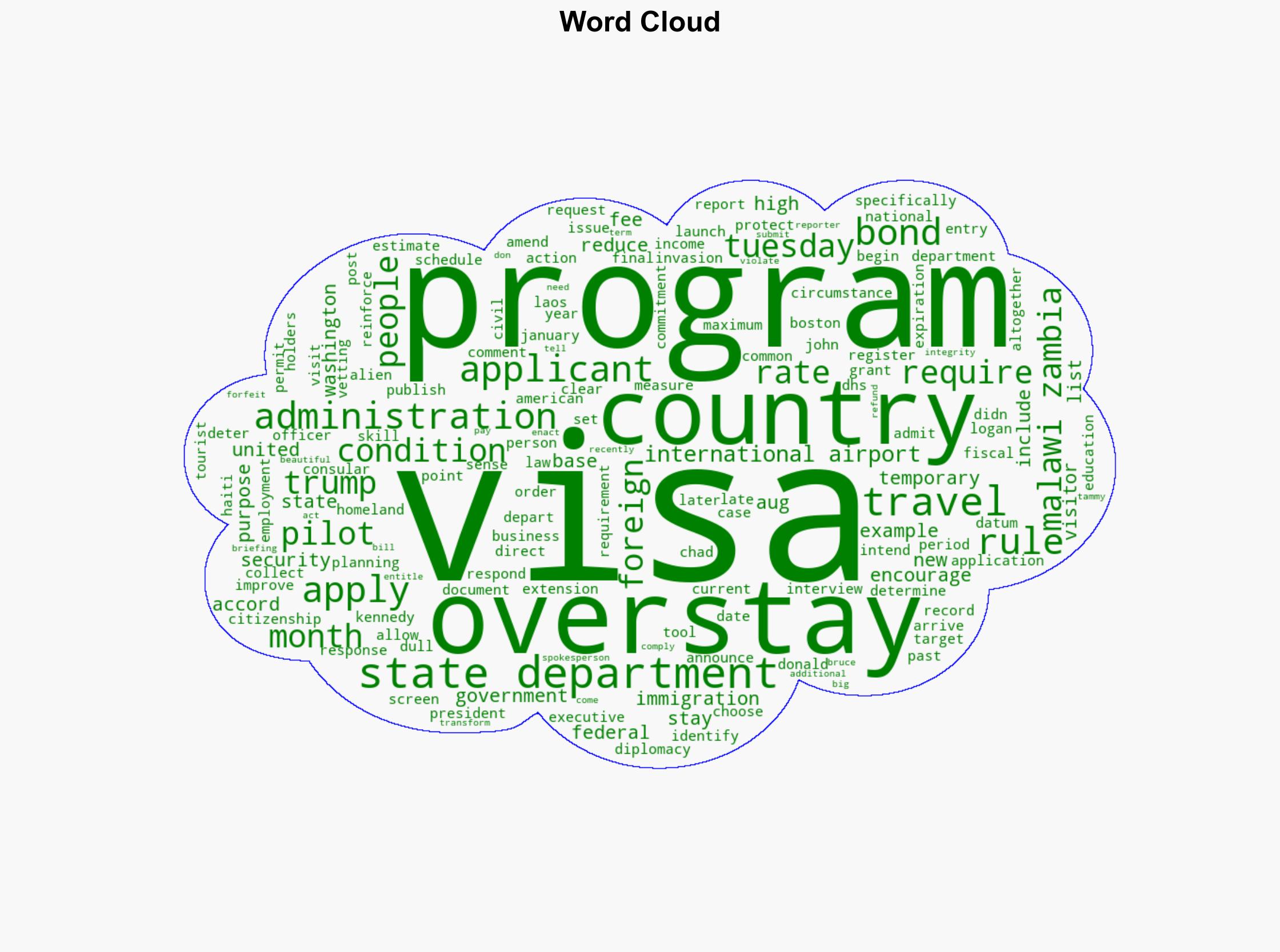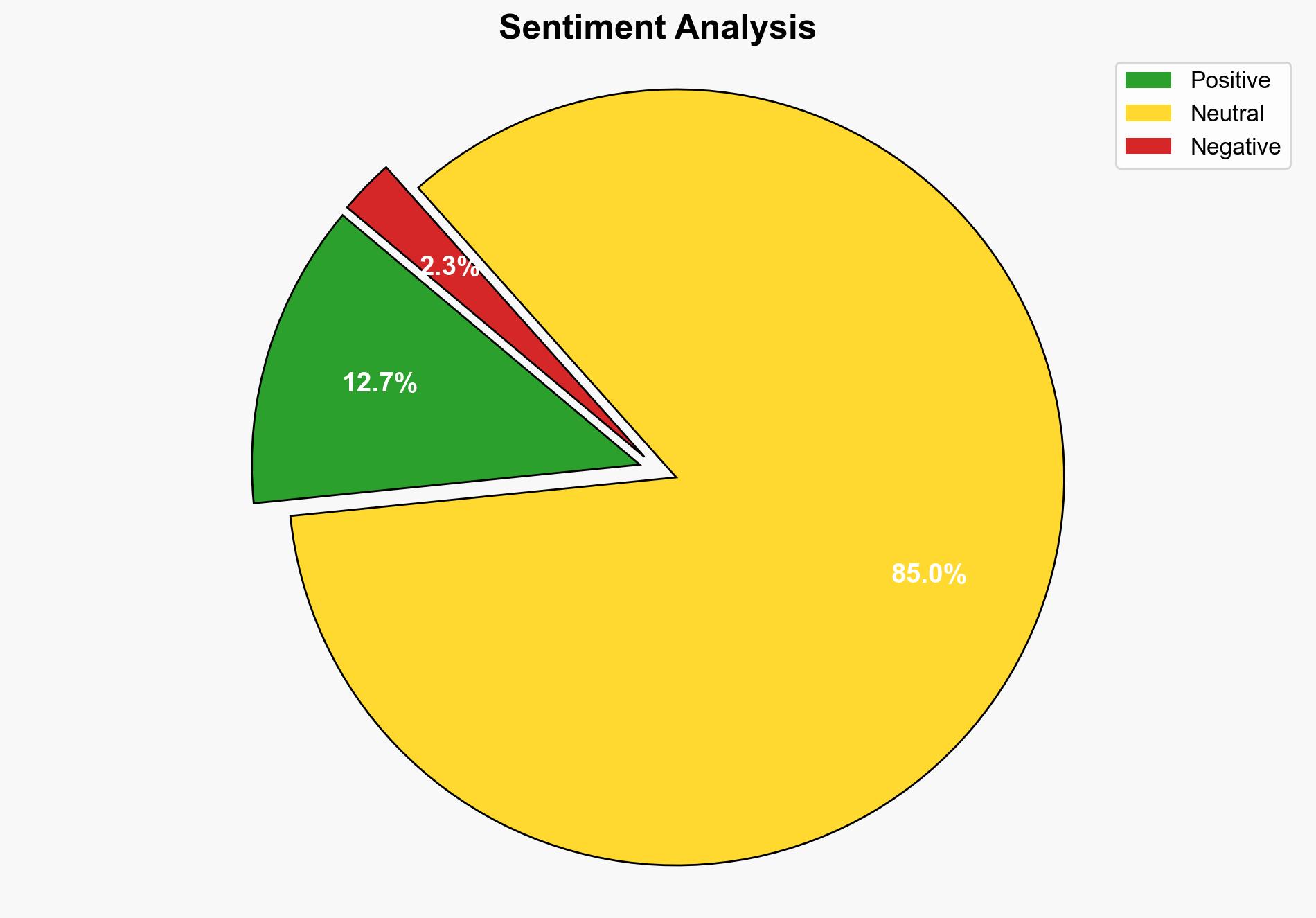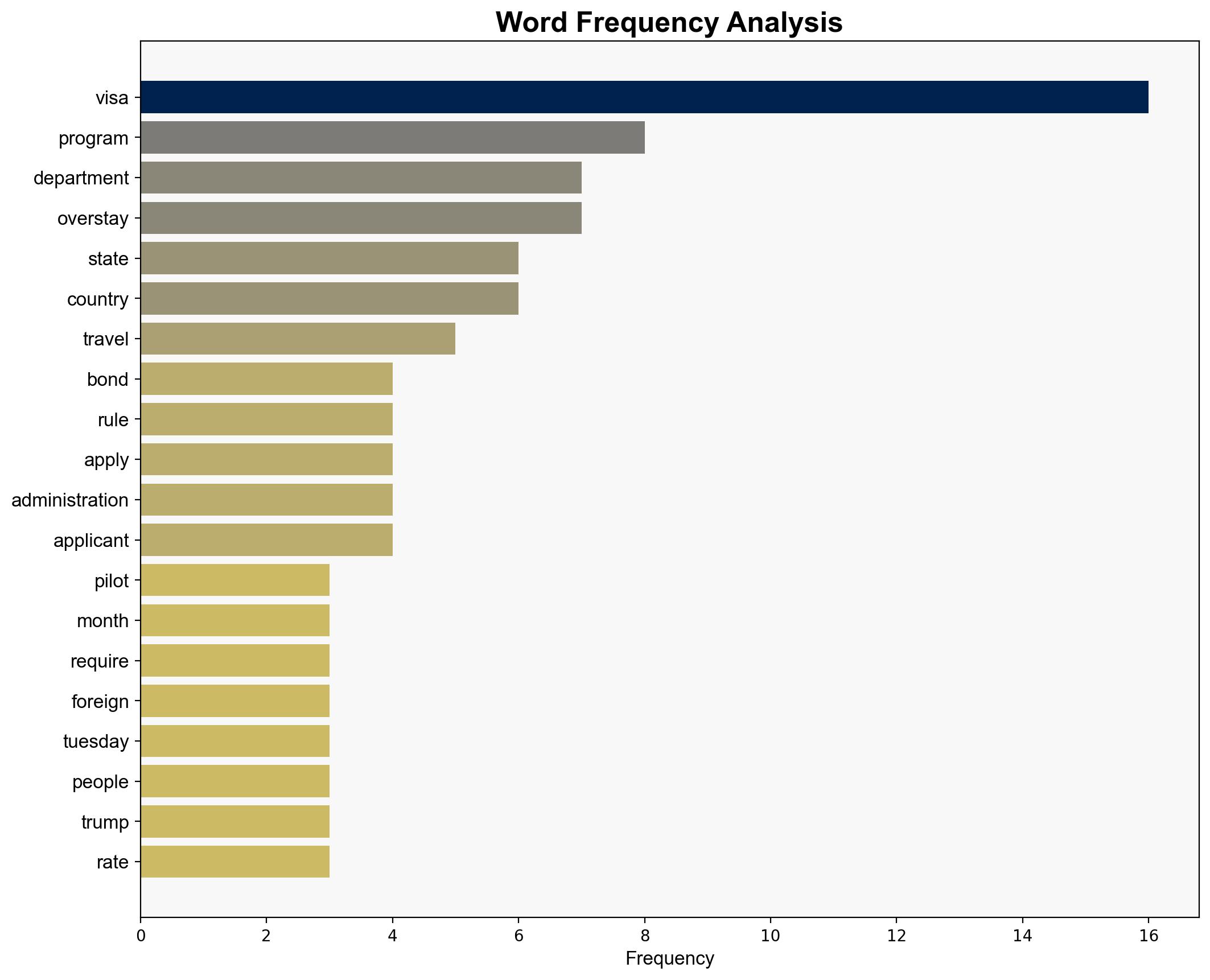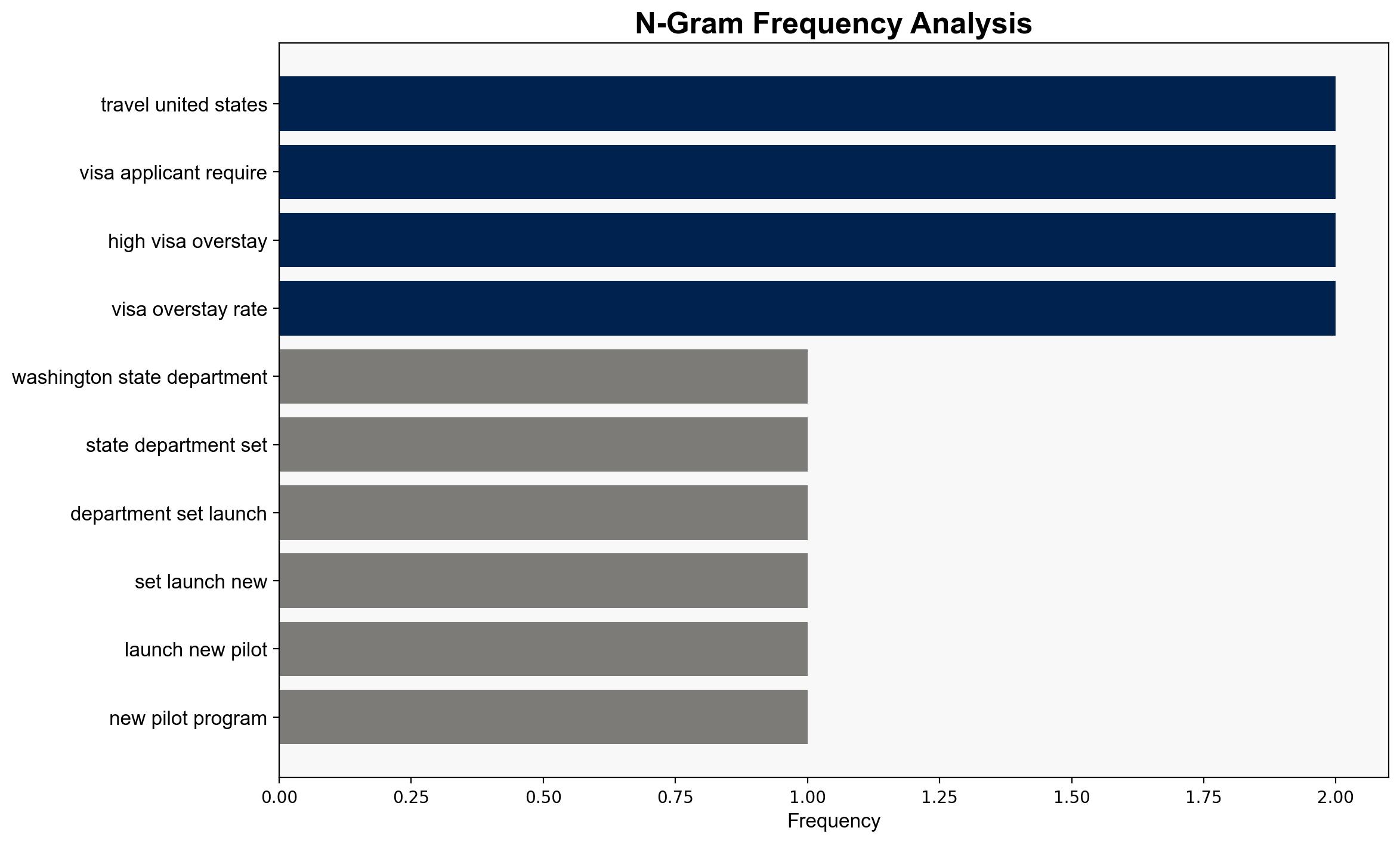State Department announces program requiring some foreign visitors to pay bonds of up to 15000 – NBC News
Published on: 2025-08-05
Intelligence Report: State Department announces program requiring some foreign visitors to pay bonds of up to 15000 – NBC News
1. BLUF (Bottom Line Up Front)
The State Department’s new pilot program requiring bonds from certain foreign visitors is likely aimed at reducing visa overstays and leveraging diplomatic pressure on countries with high overstay rates. The hypothesis that this is primarily a diplomatic tool is better supported by the available evidence. Confidence level: Moderate. Recommended action: Monitor the program’s impact on bilateral relations and overstay statistics, and prepare contingency plans for potential diplomatic fallout.
2. Competing Hypotheses
1. **Diplomatic Leverage Hypothesis**: The bond requirement is primarily a tool to pressure foreign governments into reducing their citizens’ visa overstay rates by improving their vetting processes.
2. **Domestic Immigration Control Hypothesis**: The program is primarily designed to strengthen domestic immigration control by directly deterring potential overstayers through financial penalties.
Using ACH 2.0, the Diplomatic Leverage Hypothesis is more strongly supported by the emphasis on encouraging foreign governments to improve screening and the targeted nature of the program towards specific countries with high overstay rates.
3. Key Assumptions and Red Flags
– **Assumptions**: It is assumed that imposing financial bonds will effectively deter visa overstays and prompt foreign governments to act. Another assumption is that the targeted countries have the capacity and willingness to improve their vetting processes.
– **Red Flags**: The choice of Malawi and Zambia, rather than countries with higher overstay rates, raises questions about the selection criteria. Additionally, the lack of response from the State Department on specific inquiries suggests potential gaps in transparency.
4. Implications and Strategic Risks
– **Diplomatic Risks**: The program may strain relations with targeted countries, potentially impacting broader diplomatic and economic engagements.
– **Economic Impacts**: Potential reduction in tourism and business travel from affected countries could have localized economic effects.
– **Geopolitical Dynamics**: The program could be perceived as discriminatory, affecting the U.S.’s global image and its relationships with other nations.
5. Recommendations and Outlook
- Engage in diplomatic dialogue with affected countries to explain the program’s objectives and address concerns.
- Monitor visa overstay statistics to evaluate the program’s effectiveness and adjust strategies accordingly.
- Scenario Projections:
- Best Case: Targeted countries improve vetting processes, reducing overstay rates without diplomatic fallout.
- Worst Case: Diplomatic tensions escalate, leading to retaliatory measures and reduced cooperation on other issues.
- Most Likely: Mixed results with some improvement in overstay rates but ongoing diplomatic challenges.
6. Key Individuals and Entities
– Tammy Bruce (State Department spokesperson)
7. Thematic Tags
national security threats, immigration policy, diplomatic relations, visa regulations




